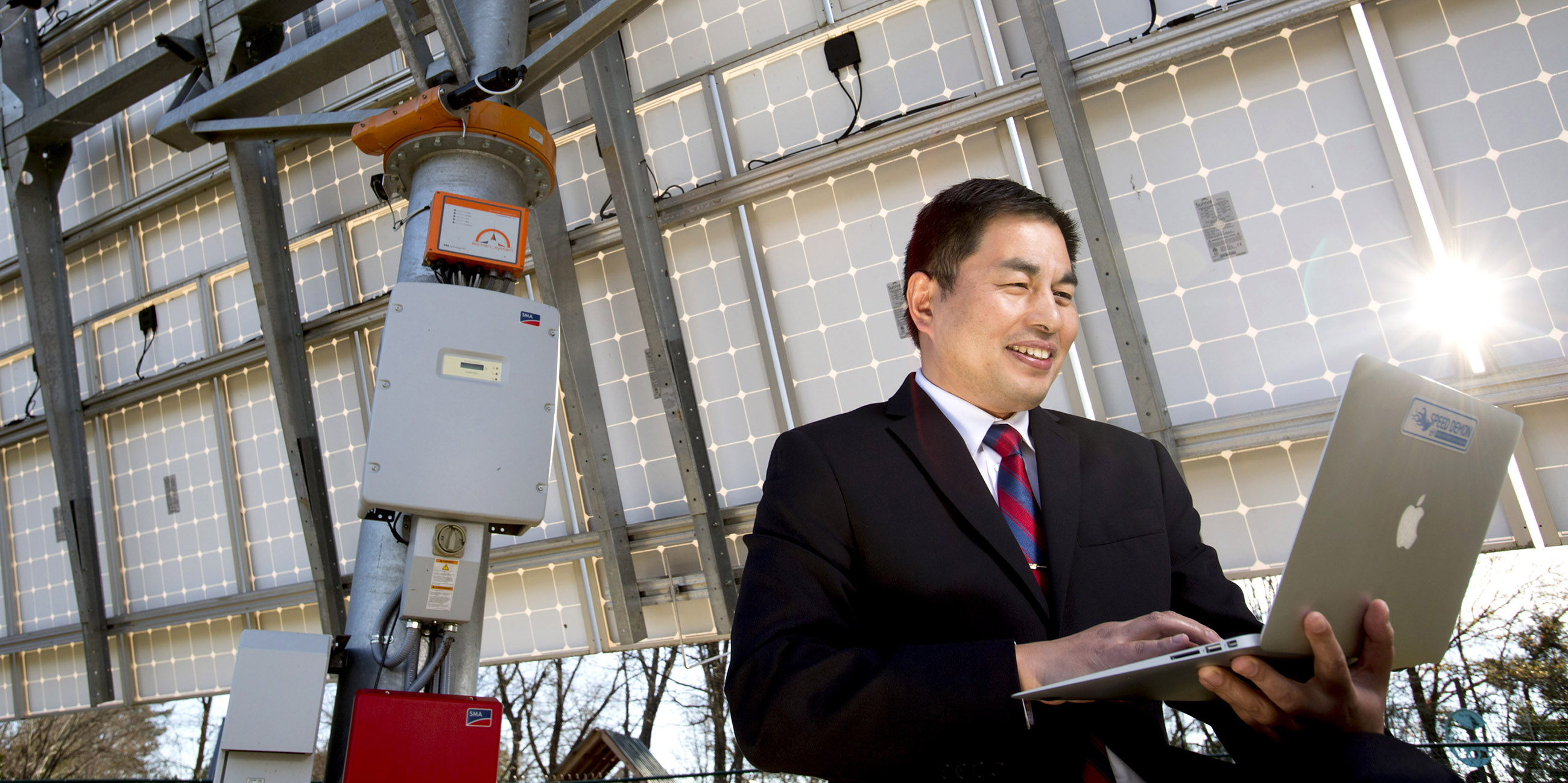WenZhan Song wants to make smart technology even smarter.
His work to develop “smart grid” energy systems has the potential to increase the use of renewable energy sources and is an example of how the work of the university’s faculty will create a more secure future for Georgians.
Song predicts that expanding smart grids will pave the way for the widespread use of electric cars and smart appliances while facilitating increased input from renewable energy sources and community-based micro-grids.
“Integrating renewable energy into our power grid has the potential to reduce our impact on the environment, and the use of smart technology has the potential to reduce the world’s overall energy consumption,” he said. “The benefits are significant.”
Song is one of eight new faculty hires whose expertise and research interests reside in the realm of “big data,” also called informatics, where massive data sets are collected and analyzed. According to Song, who joined UGA in the fall as the Georgia Power Mickey A. Brown Professor of Engineering, academic interest in the internet has shifted over the past decade.
“In the 1990s, the focus was on building the internet’s information infrastructure, which was like building a circulatory system to enable information to flow from one place to another,” he said. “What we are doing now is building a nervous system so we can sense information, analyze that information and make decisions based on the information.”
Song’s research focuses on advances in cyber-physical systems and security in energy, environmental and health applications. Cyber-physical systems, also known as the Internet of Things or IoT, are “smart” systems that link the physical world with the virtual or cyber world of information processing through sensor technology. Examples of cyber-physical systems include energy systems, security systems, robotic systems, factory automation, medical devices and systems, and building and environmental control systems.
“Informatics and cyber-physical systems are vital for the 21st century,” Song said. “It’s all about making our systems more intelligent and improving efficiency and sustainability.”
Song also develops innovative, real-time subsurface imaging systems that help make the oil and gas exploration and production process more efficient. Such a system monitors subsurface dynamics and potential hazards in geological structures and has a range of applications besides energy, including evaluations of underground utilities, civil infrastructure conditions, mining, agriculture, and border security.
Song grew up in Taizhon, a small city in China’s Jiansu province that’s about the size of Athens. From an early age, he was drawn to mathematics, physics and chemistry. After completing his bachelor’s and master’s degrees in computer science at Nanjing University of Science and Technology, Song earned his doctorate in computer science from the Illinois Institute of Technology.
His research into wireless sensor networks while at Illinois Tech piqued his interest in cyber-physical systems. That research first led him to Washington State University, where he served as an assistant professor and established his Sensorweb Research Laboratory, and then to Georgia State University. There, he served as an associate professor and professor. In 2010, Song received a National Science Foundation CAREER Award for his efforts to design a system that allows sensor networks to operate reliably and efficiently in challenging environments.
UGA’s focus on informatics — and its reputation for interdisciplinary research — played a major role in attracting Song to Athens.
“I like the multidisciplinary perspective of the university and the engineering college because informatics research must be multidisciplinary to advance,” he said. “Almost everything people do today relies on data in some form.”


